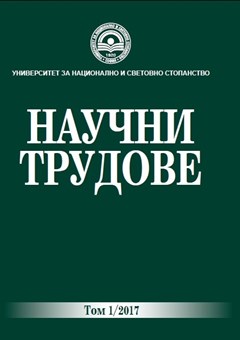Завладяване на постсоциалистическата държава: икономически, политически и социални измерения
Post-Socialist State Capture: Economic, Political and Social Dimensions
Author(s): Andrey NonchevSubject(s): Social Sciences, Economy, Political Sciences, Sociology, Political economy, Methodology and research technology
Published by: Университет за национално и световно стопанство (УНСС)
Keywords: state capture; public institutions; power networks; politico-economic power networks; rational choice; corruption; clientelism; criminal economy
Summary/Abstract: This article addresses the process of post-socialist state capture and its economic, political and social dimensions. It examines several alternative approaches to the conceptualization of state capture, offers a theoretical model of this phenomenon, identifying its specific characteristics and manifestations, and its economic, political and social effects. Definition of differentia specifica of the state capture is based on three specific theoretical approaches: neoinstitutional, social network and rational choice theories. Theoretical model is constructed, that interprets the state capture not as an anonymous actorless process, but as a rational pursuit of specific strategies for acquisition, concentration and preservation of political and economic power and economic benefits/rents. The implementation of these strategies involves the formation and operation of the politico-economic power networks that seek to control key public legislative, executive and judiciary institutions. These processes are not random and sporadic deviations but systemic in nature and lead to the construction of a specific form of government, that influences the economy, media and civil society.
Journal: Научни трудове на УНСС
- Issue Year: 1/2017
- Issue No: 1
- Page Range: 35-56
- Page Count: 22
- Language: Bulgarian

